Sunčani Hvar Hotels Spring Specials: Preseason Deals at Adriana & Amfora!
March 4, 2022 - Because you don't have to wait until the summer to visit Croatia's sunniest island. Sunčani Hvar Hotels Spring Specials are here!
It's no surprise that the glamourous Hvar town is one of the busiest summer hotspots in Croatia. Still, many may not know that the popular town is also a gem in the offseason months - and you get to experience it without the peak season crowds.
As a way to tempt travelers to Croatia's sunniest island in the calm before the tourism storm, Sunčani Hvar Hotels Spring Specials are here, with enticing offers at two of its most in-demand hotels - Adriana & Amfora!
Namely, spice up your Easter break with a minimum 2-night stay at Adriana spa hotel, with prices starting from 59 EUR per person and breakfast included! But that's not all. Adriana guests will receive a bottle of house wine and a 10% discount at its restaurants and bars during their stay. This offer is valid for the month of April with a free upgrade upon availability.
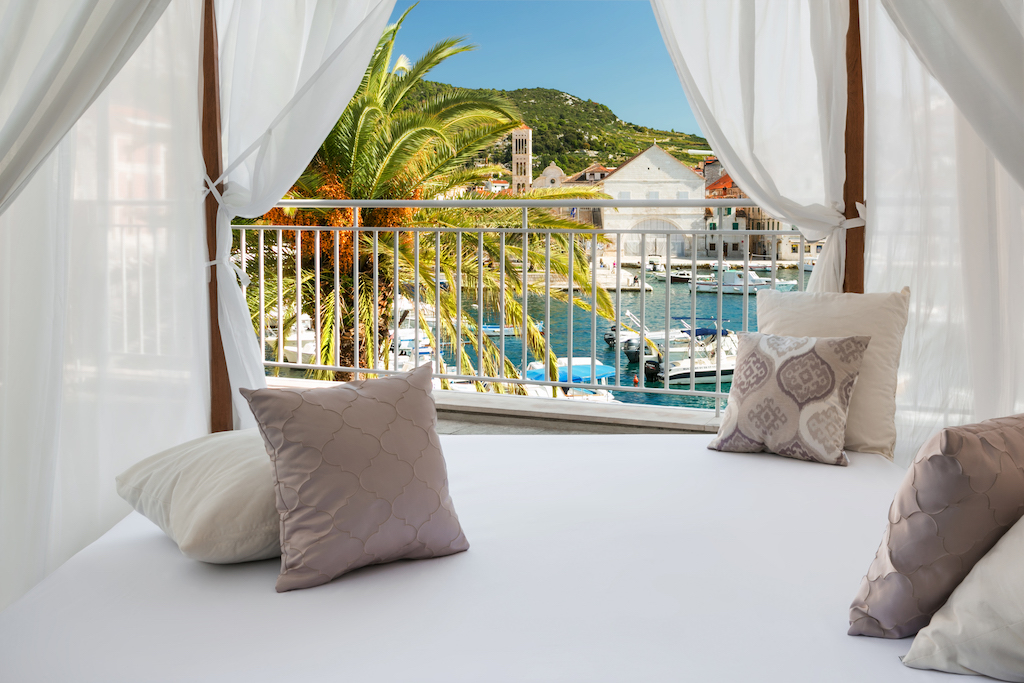
And if you can't make it in April but still want to explore the charms of Hvar this preseason?
Amfora resort has also announced a Spring Special during one of the most beautiful periods to visit the island. From 51 EUR per person with breakfast included (and a minimum 2-night stay), guests also receive a bottle of house wine, a 10% discount at its restaurant and bars, and a free upgrade upon availability. This offer, however, is valid from April 20 to June 1, 2022!
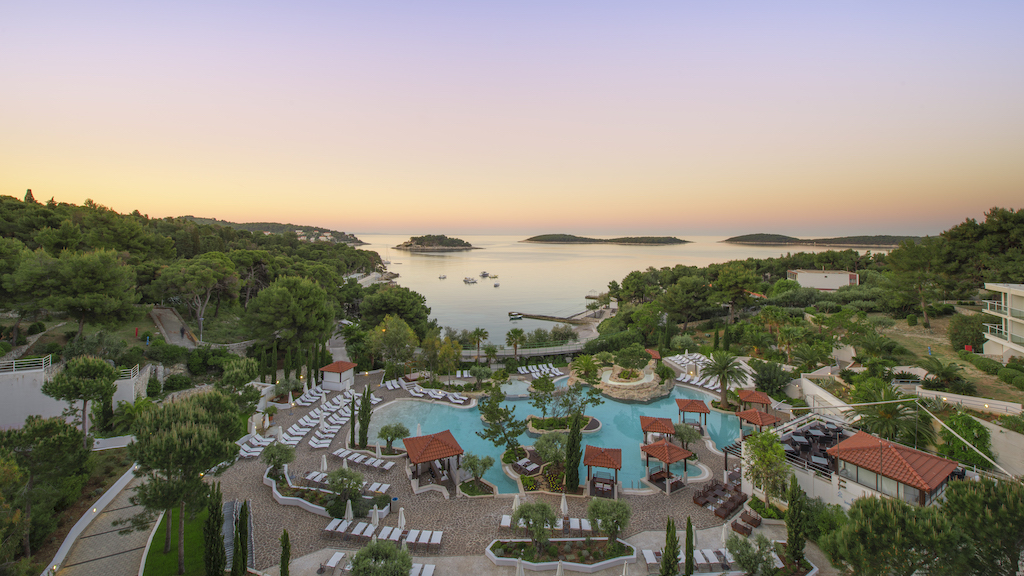
And should you need another reason to visit Hvar?
The island Hvar was voted the #1 island in Europe according to Condé Nast Readers’ Choice Awards, with readers naming its abundant nature, culture, and rich history as to why you should visit.
“With warm summers and mild winters, the island of Hvar is the sunniest spot in Croatia—there are over 2,800 hours of sunshine annually. It may be known for its beaches and turquoise water, but there’s another side to this resort island. From the town of Hvar on the island’s southern shore, make the slow, uphill climb to Tvrđava Fortica, a 13th-century fortress with the best views on the island. Pro tip: To see Hvar’s spectacular fields of lavender in full bloom, visit in early summer. The harvest takes place in late July, but you can buy all sorts of scented souvenirs in the local markets year-round,” writes Condé Nast Traveler.
Need we say more?
For more on travel in Croatia, follow TCN's dedicated page.
T1 Meetup Tokić Group: Biggest Innovation Today is on Margins of Auto Industry
tokicMarch 4, 2022 - The T1 Meetup organized by the Tokić Group was held in Zagreb about the future of the European automotive industry.
For two days, Zagreb was the center of the European automotive industry and a gathering place for thirty experts in the field of mobility, digitalization, and user experience, to jointly present and discuss common views on the future of the sector.
T1 Meetup organized by the Tokić Group has grown in recent years from an internal workshop where the Management transparently develops and shares business plans with employees, to an impressive, probably the largest regional conference on the automotive industry, mobility, and auto parts market. The latest edition, Mobility - where innovation meets tradition, was held on February 24 and 25 in three halls in Zagreb, and employees from Slovenia joined with questions through the stream; from the headquarters of Bartog in Mirna Peč, and the hall of the IEDC Bled School of Management.

From the very beginning, it was stated that the car market is following global trends and that buying cars online is becoming more frequent, especially under the influence of the COVID pandemic. Hasmeet Kaur, a partner in the consulting firm Roland Berger, explained that Western countries are leading in this field, with which Antoine Weill, a partner in the consulting firm Simon-Kucher, agreed. Weill points out that the pandemic has changed some of the expected projections, and that private mobility has regained its importance concerning public transport and car-sharing. More than a third of customers are willing to pay up to 25 percent more for a sustainable solution with less environmental impact, according to a global survey of the auto industry's largest consulting firm, Simon-Kucher.
"We already see how the value of vehicles and driving technology play a more important role in choosing a car than the price itself. Electrification and digitalization will have a significant impact on the market, with new sources of monetization such as blockchain and innovative pricing models playing a special role”, explained Antoine Weill of Simon-Kucher.

In a debate on the future of the auto and spare parts market, Bosch Regional Director Thomas Koch said that by 1930, around 19 percent of electrified vehicles can be expected to have lower maintenance costs of up to 20 percent compared to petrol and diesel. "But according to available estimates, the share of truly electric vehicles by then should be six percent", Koch said.
The gathering group touched the subject of the younger generation of customers, who, according to most research, are becoming brand agnostics, ie are choosing products, including cars, according to the configurations they can get online. Therefore, the feeling of sitting in a car and test driving with them is not crucial, which opens the market to less famous manufacturers.
Warren Espinoza, CEO of ATR International, a European group of auto parts dealers, highlighted the importance of legislation when it comes to electric vehicles and the potential for remote diagnostics and repairs in the future. With the advancement of technology, the do-it-yourself vehicle repair model will become rarer, and customers will, according to Espinoza, choose professional service centers and workshops, provided they are equipped with the appropriate technology and have trained professionals.
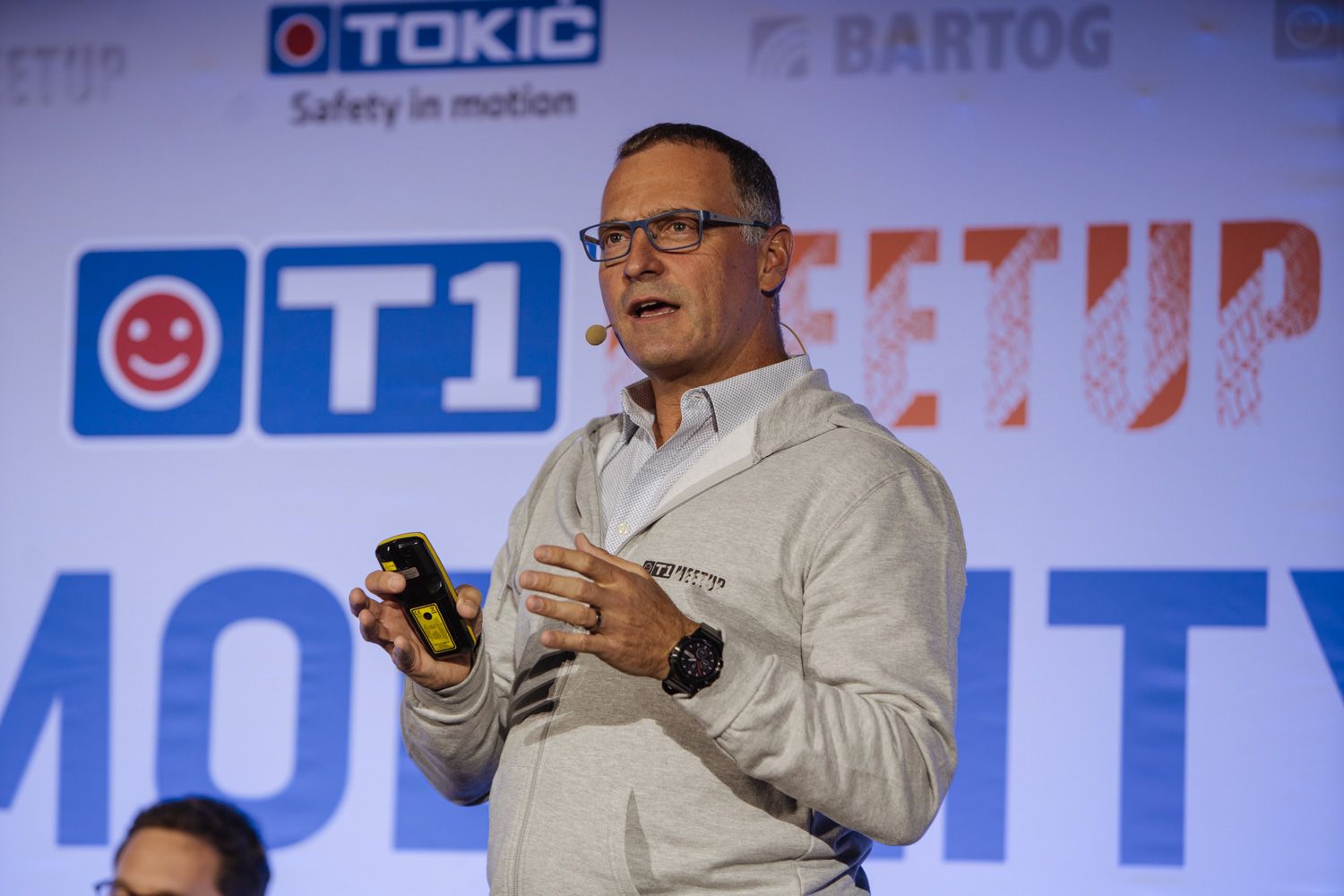
In addition to Board Members and employees of Tokić and Bartog, representatives of companies such as Toyota, Gideon Brothers, Schaeffer, Clarios (Varta), TotalEnergies, Mahle, Microsoft, Hrvatski Telekom, Lokad, Combis, and Algebra presented their experiences at the panel discussions. Everyone presented their perspective and they discussed megatrends, spare parts market, digitalization, the role of 5G technology in mobility and blockchain in logistics.
“We have gained direct insight into the latest knowledge and trends for the next ten years of the automotive industry, with an emphasis on the safety of all road users. From the design of the car and its performance, through the quality of spare parts, to the education of experts and harmonization of traffic legislation that must begin to monitor innovation and progress of available technologies - all these are topics we discussed with our guests in these two days. We all think we are ready for change, but whoever is the most honest, fastest, and capable, will win the market. I am proud that everyone showed us honor by coming and sharing their knowledge," said the President of the Management Board of Tokić Ivan Gadže.
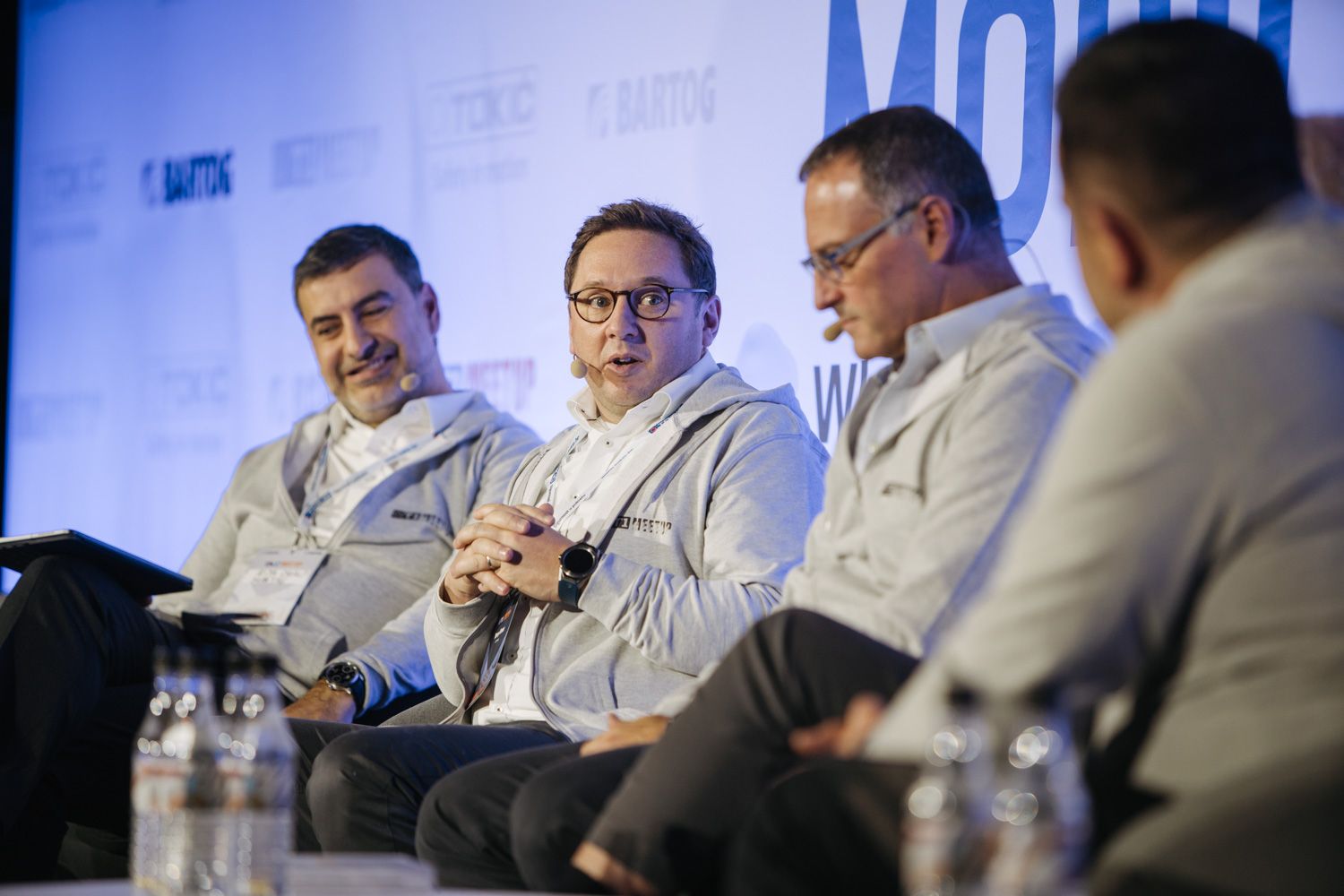
On the panels was also heard that the role of logistics and supply chain is one of the key factors and that it is especially significant that the last kilometer of delivery is always the most expensive, with a share of 41 percent of the total cost, said Guillermo Albaladejo Toyota in his presentation, opening the supply chain chapter.
On the second day of the presentation, the focus was on execution in business development, where it was shown how unpredictable and exciting the future of logistics is, and that each participant has a different approach to the idea of faster and more accurate inventory management. Fabian Hoehner from Lokad, pointing out the importance of accurate interpretation of the problem, accurately illustrated the path to full automation and artificial intelligence, through the need for in-depth learning in supply and demand correlated with delivery and distribution deadlines. "With the right metrics and analytics, we will become aware of all possible outcomes, so we will always be able to choose the best possible one", he explained.
With the same goal of greater efficiency, the approach to automation of Gideon Brothers was charismatically presented by local Matija Kopić, reminding that 95 percent of warehouses still work in the "old school" way with experienced people and that he sees in them the biggest and fastest space for progress. He pointed out that these warehouses will work for years to come, and we should ask ourselves what can be automated in them in certain elements and processes and how we can solve burning problems with flexible robotics.
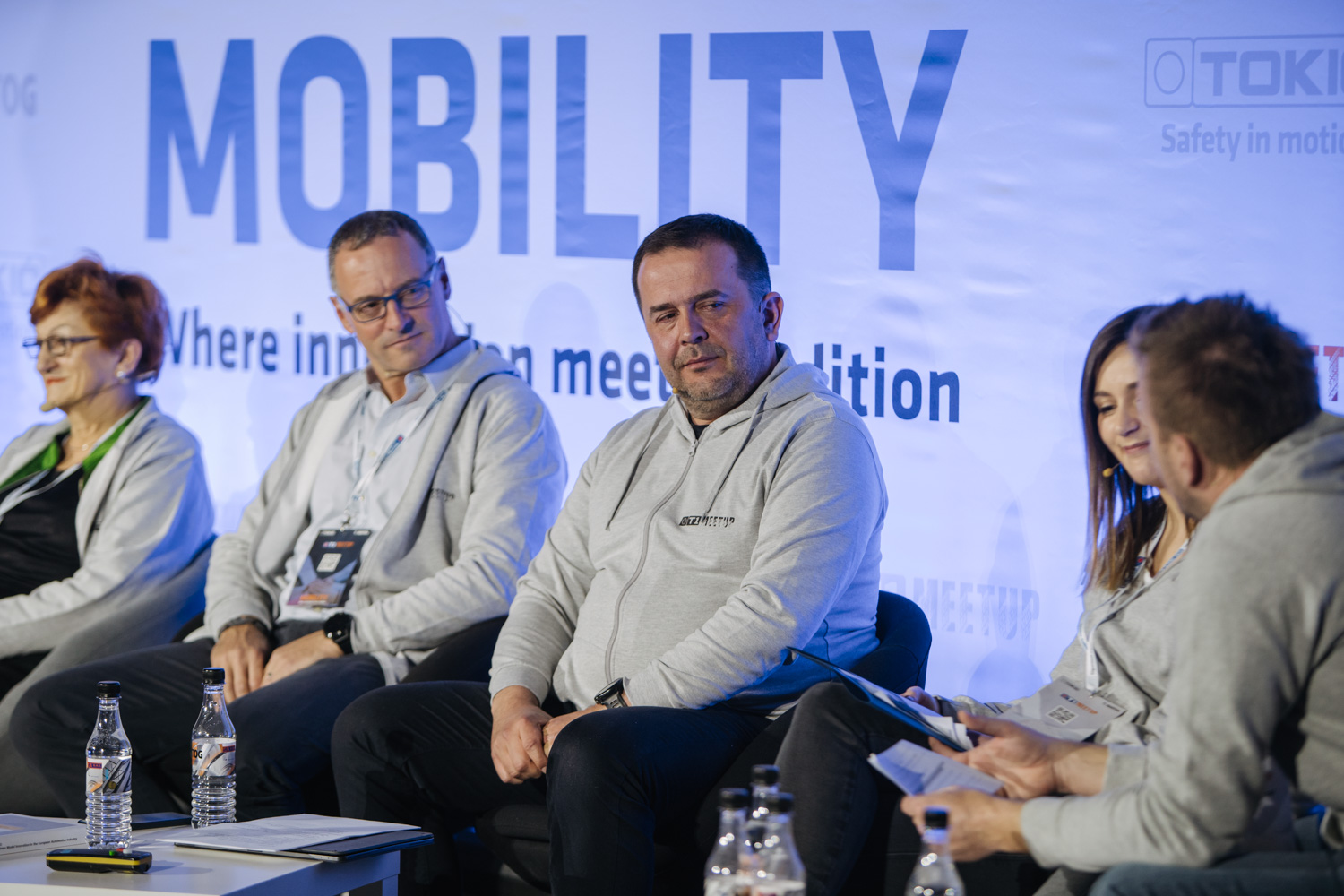
Therefore, the panelists agreed, change most often occurs on the margins of the business, where not all attention is focused, and where, when it comes to the automotive industry and mobility, technologically innovative processes are being created today. The conclusion of all 30 speakers is that the seemingly traditional automotive industry is developing rapidly, but that it is necessary to listen to customers whose priorities and interests are significantly different today than 10 or 20 years ago and be open to new technologies that improve user experience.
For more, make sure to check out our dedicated business section.
Zagreb February Tourism Continues to Record Positive Trend Seen in 2022
March the 4th, 2022 - Zagreb February tourism is continuing the positive trend seen so far this year which makes a very pleasant change when compared to what we've been seeing over the last two years as a result of the coronavirus pandemic.
As Poslovni Dnevnik writes, according to the Zagreb Tourist Board (TZGZ), the Croatian capital recorded 137 percent more arrivals and 105 percent more overnight stays in February than it did back in pandemic-dominated February 2021, during which many countries were still in lockdown and severe restrictions on travel were in force.
Luckily for Zagreb February tourism for 2022, an impressive total of 45,082 arrivals and 104,104 overnight stays were registered, and, in addition to Croatian guests, most overnight stays were made by guests from: Russia, Italy, Germany, Bosnia and Herzegovina and Serbia. In February, there were 31,337 overnight stays realised by Croatian tourists, which is an increase of 35 percent when compared to February last year, and foreign guests realised 72,767 overnight stays, an increase of 164 percent. Out of the total number of arrivals, 16,231 (representing growth of 43 percent) and foreign tourists 28,851 (representing growth of 277 percent).
On that occasion, Martina Bienenfeld, director of the Zagreb Tourist Board, said: "We're pleased that February has continued the upward trend and that we are, in total, during the first two months of 2022 at 90 percent of the amount of overnight stays realised during the same period back in 2019. In real terms, in January and February, we recorded 87,915 arrivals and 211,307 overnight stays, which is an increase of 155 percent in arrivals and 119 percent in overnight stays when compared to the first two months of 2021.
We're also seeing a gradual recovery in business, the so-called MICE segment. Namely, based on the data collected during 2021, the Zagreb Tourist Board recorded a total of 664 business meetings, which is an increase of 28 percent more meetings than in 2020. In addition, we're pleased with two recent independent studies where our city has achieved great results compared to other European and global cities. One is the Ovo Network survey, according to which Zagreb ranks fourth as a destination for families with children (https://bit.ly/3Mdj3TH), and the other is the Holidu.co.uk survey (https://bit.ly/3pubpLc ) according to which Zagreb is in tenth place as the safest city to travel to for women.''
While Zagreb February tourism numbers are of course worth celebrating, we can't forget to mention the horrendous situation taking place in Ukraine as a result of the unjustified Russian invasion of that country around a week ago. The Zagreb Tourist Board has compiled all the information on the reception of Ukrainian refugees in the area of the City of Zagreb on its website. The information is available in Ukrainian, English and Croatian, and it summarises instructions on accepting and assisting Ukrainians who have been forced to leave their homes.
For more, check out our travel section.
Croatian Maritime Affairs Ministry Presents INTESA Project
March the 4th, 2022 - The Croatian Maritime Affairs Ministry (Ministry of Maritime Affairs, Transport and Infrastructure) has presented its INTESA project, an innovative system which will work to improve maritime transport efficiency and overall safety in the Adriatic Sea.
As Morski writes, organised by the Croatian Maritime Affairs Ministry, an online meeting was held on March the 2nd, 2022, at which the activities of the aforementioned ministry within the INTESA project - Improving Maritime Transport Efficiency and Safety in the Adriatic were presented to stakeholders, who were primarily from the wider Split area.
Among other things, the pilot activities of upgrading the Croatian unified interface for maritime formalities was emphasised, which enabled two-way exchange of information with port IT systems, with special focus on the national port information system - nPCS.
A description of future actions was also presented within the scope of this praiseworthy project, with a view to facilitating the exchange and distribution of MSI maritime security information, while the activities of other Croatian and Italian project partners were briefly presented.
The INTESA project, with a total value of 2,896,480.00 euros, of which 85 percent is being co-financed by the European Union (EU), will establish a network between the national maritime administrations of the Republic of Croatia and neighbouring Italy and the most important port authorities in the Adriatic Sea as a whole. The aim of the project is to harmonise and optimise the procedures of the entire maritime transport process, for the purpose of a much more efficient and safer port and maritime transport system.
The project itself began on January the 1st, 2019, and will end on June the 30th, 2022, and in that period, the Croatian Maritime Affairs Ministry has had 265,020.00 euros at its disposal, of which 39,753.00 euros are from the Croatian state budget.
In addition to the employees of the Croatian Maritime Affairs Ministry, the meeting was attended by representatives of the State Hydrometeorological Institute, the Croatian Hydrographic Institute, the Maritime Faculty in Split, the Plovput company and the Port Authorities of both Split and Ploce in central and southern Dalmatia.
For more, make sure to check out our lifestyle section.
Beloved Croatian Mljet National Park Re-opens Doors Today
March the 4th, 2022 - The much loved Croatian Mljet National Park (NP Mljet) has opened its proverbial doors to visitors once again today! The gorgeous park, situated in what is otherwise the southernmost and easternmost of the Adriatic islands of Dalmatia, attracts countless visitors from all over the world, and with the coronavirus pandemic hopefully dying down, fingers are crossed for an excellent season.
As Morski writes, the Croatian Mljet National Park has announced that this beautiful protected island oasis has opened its doors once again for guests today (March the 4th, 2022).
The national park itself is a favourite place to visit for those spending time in both southern and central Dalmatian mainland destinations such as Dubrovnik, Split, Makarska and the smaller areas dotted between them. The park covers the western part of the island, Soline bay, Malo jezero (Small lake), Veliko jezero (Great lake) and a 500 metre-wide sea belt from the cape of Mljet which spans 54 square kilometres in total.
Enjoying the natural and cultural values of the Mljet National Park is possible at a price of just 70 kuna for adults, 35 kuna for children from 8 to 18 years of age and 50 kuna for students. Admission for children under the age of 7 is still free, and a purchased ticket also includes a boat ride on the Great lake (Veliko jezero) and free guided tours.
Now that it is once again open to visitors from all over the world, you can visit the stunning Mljet National Park from Friday to Sunday from 08:00 to 15:00, and you can buy tickets at the Information point at the Great lake. Visitors are also provided with free parking at the entrance to Vrbovica.
A visit to the island and the Mljet National Park is possible by ferry line from the port of Prapratno on Peljesac to the port of Sobra on Mljet, and the ferry timetable can be accessed by clicking here.
For more on Croatian national parks, click here.
Foreign Exchange Intervention: Croatian National Bank Sells €171 Million
March the 4th, 2022 - The Croatian National Bank (CNB/HNB) has sold a massive 171 million euros to various banks in a recent exchange rate intervention, the first which has taken place since back in June last year.
As Jadranka Dozan/Poslovni Dnevnik writes, on the 2nd of March, the Croatian National Bank intervened in regard to the exchange rate by selling off foreign exchange to banks in order to preserve the stability of the exchange rate, while 171 million euros were sold to banks at an average exchange rate of 7.562505, the central bank announced.
As a result of this foreign exchange intervention, which has obviously been primarily driven by increased demand for foreign exchange, about 1.3 billion kuna is being withdrawn from the system.
After the opening of that day's trading, the market exchange rate of the euro/kuna stood at 7.58, which is slightly higher than it had been. In the daily reviews of leading banks on the Croatian foreign exchange market, it could be read that on Tuesday this week, there was a slightly higher demand for euros by corporate clients for foreign currency payments, but in the past few days, a slightly higher demand was attributed primarily to the retail sector.
As briefly touched on, the Croatian National Bank last intervened in the foreign exchange market back in mid-June of last year, but then it was by buying foreign exchange from banks as a result of increasing appreciation pressures, while the last time it intervened by specifically selling off euros was in the first half of April 2021.
For more, make sure to check out our dedicated business section.
Russia Banned from European Water Polo Championships in Split this September
March 4, 2022 - The European Water Polo Championships in Split will be held from August 27 to September 10, 2022, at Spaladium Arena.
A special program awaits water polo this year, with the World and European Championships held just a few months apart. Namely, the first to be held is the pandemic-postponed World Aquatics Championships, and after the initial news that the Fukuoka tournament would be postponed yet again this summer, FINA announced in early February that the tournament would go on, but in Budapest instead from June 18 and July 3.
The world's best water polo players will thus compete in Hungary this summer - and just two months later, Split will host the European Water Polo Championship from August 27 to September 10.
The 16 best national teams in Europe will compete at Split's Spaladium Arena this summer. The draw will take place on April 23.
European Water Polo Championship, Split, August 27 to September 10:
Croatia
Greece
Hungary
Serbia
Spain
Italy
Germany
Montenegro
Georgia
Germany
Israel
Romania
Malta
Slovakia
Netherlands
The European umbrella organization for water sports (LEN) has decided that the Russia water polo team will not play in Split. LEN has banned all Russian and Belarusian athletes from participating in their competitions, both club and continental.
"The European Water Sports Federation (LEN) met yesterday and decided not to invite Russian and Belarusian athletes and officials to LEN events in response to the invasion of Russian forces in Ukraine, until further notice," LEN said in a statement, adding that no LEN competitions would be organized in Russia or Belarus until further notice.
LEN also expressed support for Ukrainian athletes and the Ukrainian people.
"LEN strongly condemns the actions of the Russian government supported by Belarus in its invasion of Ukraine. This act of war has ruined the lives of Ukrainian citizens and is completely contrary to the sporting spirit," LEN added.
In addition, LEN announced that it supports a concrete humanitarian initiative of the Croatian Art Swimming and Diving Associations to accommodate Ukrainian athletes and family members as refugees.
This project, supported by FINA, will allow athletes to continue to train and represent Ukraine in international competitions. This initiative is supported by the Ministry of Sports and Tourism of the Republic of Croatia, and the hosts will be Zagreb, Zadar, Rijeka, and others, according to the LEN website.
Source: Gol.hr
To read more about sport in Croatia, follow TCN’s dedicated page.
EHF EURO 2022 Qualifiers: Croatia Women's Handball Falls to France in Koprivnica
March 4, 2022 - The Croatia women's handball team lost to France (19:21) in the 3rd round match of Group 4 in the EHF EURO 2022 qualifiers on Thursday.
It was an exciting match in which Croatia did not give up even when they were far behind. However, in the end, Croatia missed two seven-meter throws.
Numerous injuries in the Croatia national team significantly changed the starting lineup compared to the World Champs. Coach Nenad Šoštarić, therefore, started with Ivana Kapitanović in goal, Andrea Šimara and Ana Turk on the wings, Ana Debelić as the pivot, and Valentina Blažević, Dora Krsnik, and Dejana Milosavljević in the outside positions.
Unusual nervousness plagued both teams at the start. France missed four attacks (with two saves by Croatia's goalkeeper), and Croatia three. The first goal was scored at the beginning of the fifth minute by Andrea Šimara. On the other hand, France reached their first goal in the sixth minute. After that, they scored two more and held their advantage. Croatia played great defense, especially Ana Debelić and Kristina Prkačin, who held the middle.
Olivier Krumbholz was not overly pleased with his team's game and constantly rotated players for the ideal lineup to handle Croatia's defense. However, Croatia struggled in the attack but did not give up. In the 20th minute, it was 7:7.
France then scored two goals in a row for 7:9 in the 23rd minute. After that, Croatia could equalize from two seven-meter throws but missed both. Just 90 seconds before halftime, France went up by three goals for the first time - 8:11. With another goal in the last seconds before halftime, the result was 8:12.
France opened the second half better. In five minutes, they scored three goals, and Croatia only one, making it +6 - 9:15. Croatia, however, showed character again. With three goals in a row in the 40th minute, they managed to halve the advantage of the Olympic winners and reach 13:16. Five minutes later, they were even closer, at minus two - 16:18.
At 17:19, Croatia had two attacks to equalize, but France instead scored for 17:20 with seven minutes to go.
Nevertheless, Croatia rose again. Josipa Mamić's goal just 90 seconds before the end put Croatia behind by only one goal - 19:20. However, France quickly responded on the other side for the final 19:21.
Valentina Blažević scored four goals and Dejana Milosavljević three.
The return match will be played on Sunday at 17:30 in Toulouse.
Source: HRS
To read more about sport in Croatia, follow TCN’s dedicated page.
Artist Collective Igralke from Rijeka Invited to International Theatre Festival in Berlin
March 3rd, 2022 - The documentary performance Bakice (Grannies) is based on testimonies of poor elderly women from Rijeka who survive by collecting discarded plastic bottles
Written and performed by Kolektiv Igralke from Rijeka, the documentary performance Bakice (Grannies) has been winning the hearts of audiences all over Croatia ever since it premiered as part of the programme Rijeka 2020 - European Capital of Culture. The play is now beginning to conquer the international theatre scene, reports Novi list.
Following the international festival of contemporary performing arts Mladi Levi in Ljubljana, the Zoom Festival in Rijeka and the Ulysses Theatre, the play is now heading to the prestigious Theatertreffen Festival in Berlin.
Out of 357 applications from 61 countries, the expert jury selected only five projects to be included in the programme of the Theatertreffen-Stückemarkt Festival in Berlin. Among them is the play Bakice, a project of the artist collective Igralke from Rijeka.
Authors and actors Sendi Bakotić, Ana Marija Brđanović, Anja Sabol and Vanda Velagić will perform their play in Berlin in May 2022, accompanied by the Bakice director and co-author Tjaša Črnigoj from Slovenia.
The Theatertreffen Festival is one of the most renowned European theatre festivals, which historically featured great names such as Pine Bausch, Samuel Beckett, Rainer Werner Fassbinder, Heiner Müller, Thomas Ostermeier and many others.
Theatertreffen-Stückemarkt is a platform that presents new progressive authors and projects from all over the world. Kolektiv Igralke and Tjaša Črnigoj were invited to stay in Berlin for two weeks and participate in various workshops and networking programmes with foreign artists and producers. They’re also in the running to win a production of a new project at the Schauspiel Leipzig theatre in the 2023/2024 season.
The play Bakice which got the authors invited to the Berlin festival redefines the classical boundaries of theatre and art. It was written based on testimonies of poor elderly women from Rijeka who survive by collecting discarded plastic bottles.
Touching and unexpectedly entertaining, the play speaks about work, dignity, youth and old age, survival and life of women over the age of 65. In a time where it’s become ‘normal’ to dig through garbage bins, Bakice are questioning where we are and where we’re headed as individuals and as a society.
The play’s impact goes beyond theatre walls, as donations for programme booklets go directly to the four women who shared their personal stories which are featured in the play: Albina, Ludmila, Marta and Suzana.
Istrian Olive Grower Loses Land Bid as Ministry of Agriculture Backtracks on Tender Specifications
March 3rd, 2022 - Sandi Chiavalon, one of Croatia’s leading olive oil producers, was looking to invest around seven million kuna into a new olive grove in Istria.
Renowned olive grower Sandi Chiavalon was planning to lease 30 hectares of land in the Vodnjan area, close to another large olive grove owned by Oio Vivo, where he would plant nearly 10,000 olive trees and hire four new workers to manage the operation.
As reported by Glas Istre/Bojan Žižović, his plans fell through. In a strange turn of events, the Ministry of Agriculture didn’t approve the decision of the City of Vodnjan to lease state-owned land to Chiavalon, whose oil is produced in Vodnjan and exported to 23 countries worldwide.
This is a major agricultural project which, according to Chiavalon, would be beneficial for the wider community, including the national and city budgets. The state, however, says that Chiavalon and other local farmers cannot lease more than ten hectares of state land at once, as stipulated by the City of Vodnjan.
The decision of the state comes off as petty, as consent could have clearly been given in this case. As Chiavalon explained, the City’s land management plan indeed states that up to ten hectares of land can be leased to one party, but exceptions are allowed as long as it’s a single plot - as is the case here. The land in question is a single plot of about 70 hectares, divided by the City into six agricultural units of which Chiavalon was looking to lease three.
In the tender, whose content was approved by the Ministry of Agriculture, it was stated that whoever applies for one plot can lease up to 40 hectares of land on the said plot. Now that the tender is closed, the Ministry changed the tune and said that a maximum of ten hectares can be leased on the plot in question. As things stand, Chiavalon’s choices are to either lease only ten hectares or abandon the project entirely.
‘They called us from the City to have us choose which of those three plots of ten hectares we would lease. That doesn’t come close to what I wanted to do here - introduce an automated system, a completely new technology for grove maintenance… The question is whether we will take those ten hectares at all, we have to make an economic analysis of whether it’d be profitable to do it all on a land of that size. There are various systems in olive growing nowadays; intensive groves are robotically managed and processed. But for something like that we’d need a single large plot of land. We currently own 68 plots at 12 different locations. In those conditions, you can engage in organic olive growing only conventionally. When you have a single block of land, so to speak, such as Oio Vivo, only then can you introduce modern automated systems’, said Chiavalon.
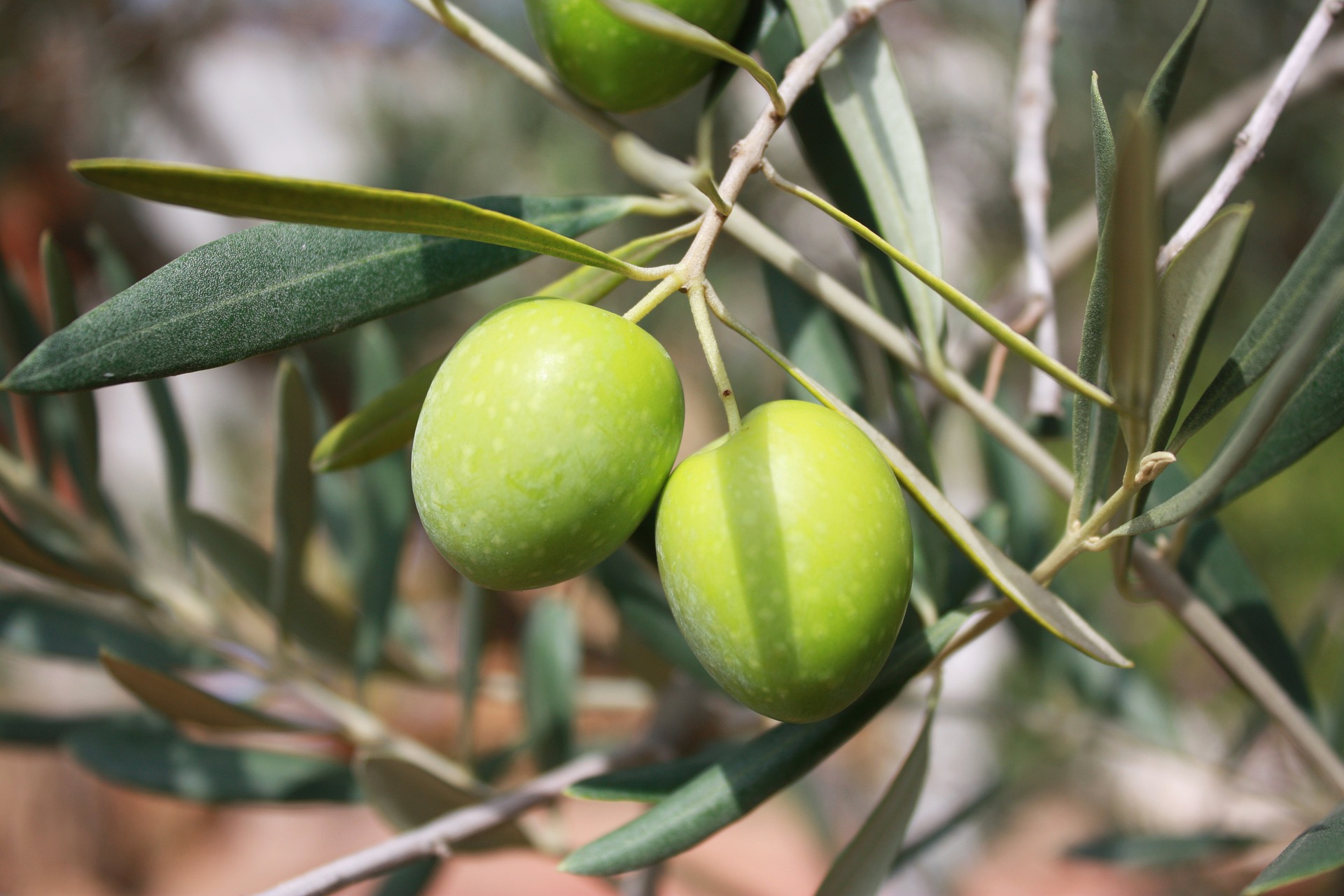
Asked whether there was a chance of him leasing more than ten hectares in this area in the future, Chiavalon said he might if a new tender was announced. ‘As we had to drop out, some other people would probably apply to get the land. However, the question is who can make it operational because it’s a considerable investment’, said Chiavalon.
The olive grower from Vodnjan would have doubled the count of his olive trees if he got the lease he was going after. He currently owns 30 hectares of land, but as mentioned above, split between 12 different locations, which results in production costs 20 to 30 percent higher than if he were to cultivate a single parcel of that size.
He says there’s always the option to increase their output by purchasing produce from other farmers, but they want to grow as much of their own produce as possible.
Asked who was to blame for what happened, Chiavalon said the problem might lie in the lack of communication between the Ministry and the City of Vodnjan. ‘But the City did not come up with the tender out of thin air, it had to do so with the consent of the Ministry, whose clerk then said it wasn’t implemented well. If it had come to another clerk, it would have probably passed.’
He also pointed out that the laws concerning agricultural land keep changing and aren’t implemented efficiently. ‘This tender was announced a year and a half ago and was not completed in that time. In the meantime, the plot could have been cleared and a new grove planted. In 20 years, there were only three tenders for the lease of state-owned agricultural land, which is a disaster’, he said, adding that at least one tender should be announced every year given how much uncultivated land there is in the area. ‘There are more than 3,000 hectares of uncultivated land in Vodnjan. There’s plenty of land for everyone who wants to work in agriculture. You just need to have the resolve’, said Chiavalon.


